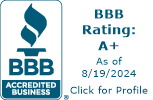
June 5th, 2023 – In today’s fast changing business landscape, companies have to navigate a complex web of regulations and laws. Of those, compliance with Human Resource regulations is one of the most critical.
Here are 5 ways compliance with HR regulations benefits employees and businesses.
- Protecting Employee Rights
Compliance with HR regulations establishes a framework that safeguards the rights and interests of employees. These regulations cover a wide range of areas, including wages, overtime pay, safe working conditions, anti-discrimination laws, and protection against harassment and unfair treatment. By adhering to these regulations, organizations demonstrate their commitment to creating a respectful and inclusive work environment where employees are treated fairly and their rights are upheld.
- Ensuring Fair Employment Practices
HR regulations play a crucial role in promoting fair employment practices. They aim to prevent discrimination based on factors such as gender, race, age, religion, disability, or national origin. Compliance with these regulations ensures that organizations embrace diversity and inclusivity, making hiring and promotion decisions based on merit rather than discriminatory biases. By adhering to these guidelines, businesses foster a culture of equal opportunities, enhancing employee morale and productivity.
- Mitigating Legal Risks and Liabilities
Non-compliance with HR regulations exposes organizations to legal risks and liabilities. Violations of these regulations can result in costly lawsuits, fines, and damage to a company’s reputation. Compliance reduces the likelihood of facing legal repercussions, as organizations can demonstrate that they have taken appropriate measures to adhere to the regulations and standards. By maintaining comprehensive records, adhering to hiring and termination procedures, keeping employee handbooks up to date and providing proper training, businesses can significantly mitigate legal risks and protect their reputation.
- Promoting Employee Health and Safety
HR regulations encompass occupational health and safety standards that help employees have a safe working environment. Compliance with health and safety regulations involves implementing measures to prevent accidents, providing necessary safety training, and maintaining proper record-keeping of incidents and precautions taken. By prioritizing employee well-being and meeting these requirements, organizations foster a culture of safety and reduce the risk of workplace injuries, thereby enhancing productivity and reducing employee absences.
- Enhancing Organizational Culture and Employee Engagement
Compliance with HR regulations can positively impact an organization’s culture and employee engagement levels. Demonstrating a commitment to ethical and responsible practices helps establish trust and loyalty among employees. When employees feel valued and respected, they are more likely to be engaged, motivated, and productive. Compliance with HR regulations, particularly those addressing work-life balance, employee benefits, and fair compensation, contributes to a positive work environment, leading to increased job satisfaction and employee retention.
As regulations continue to evolve, it is imperative for organizations to stay informed, adapt, and prioritize compliance to create a workplace that values its most valuable asset—its employees. Colorado Health Insurance Brokers provides HR and C-Suite Support Services to it’s business health insurance clients at no additional cost. Learn more here. Get a benefits quote today for your Colorado business.





